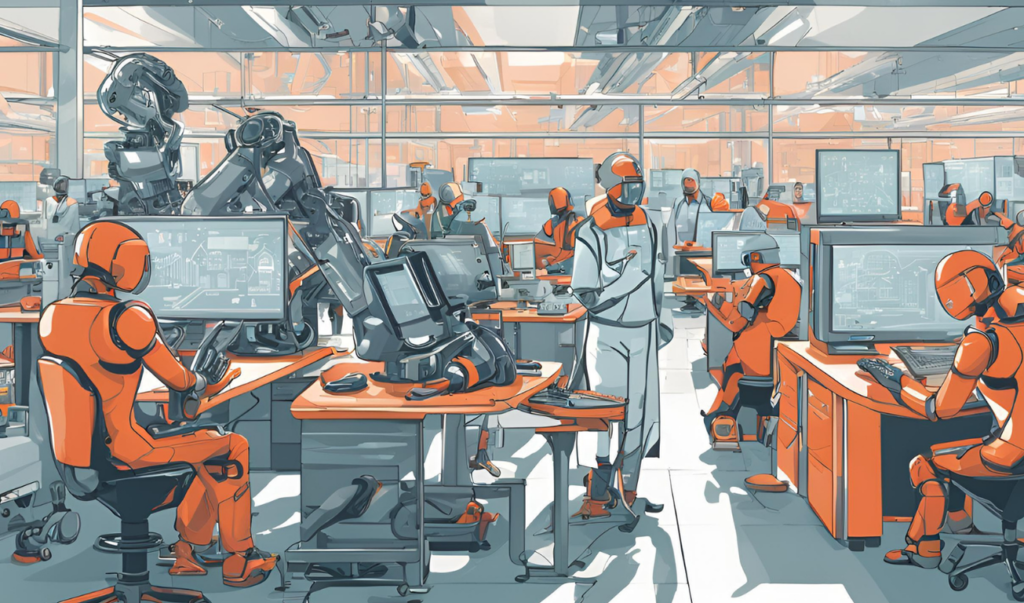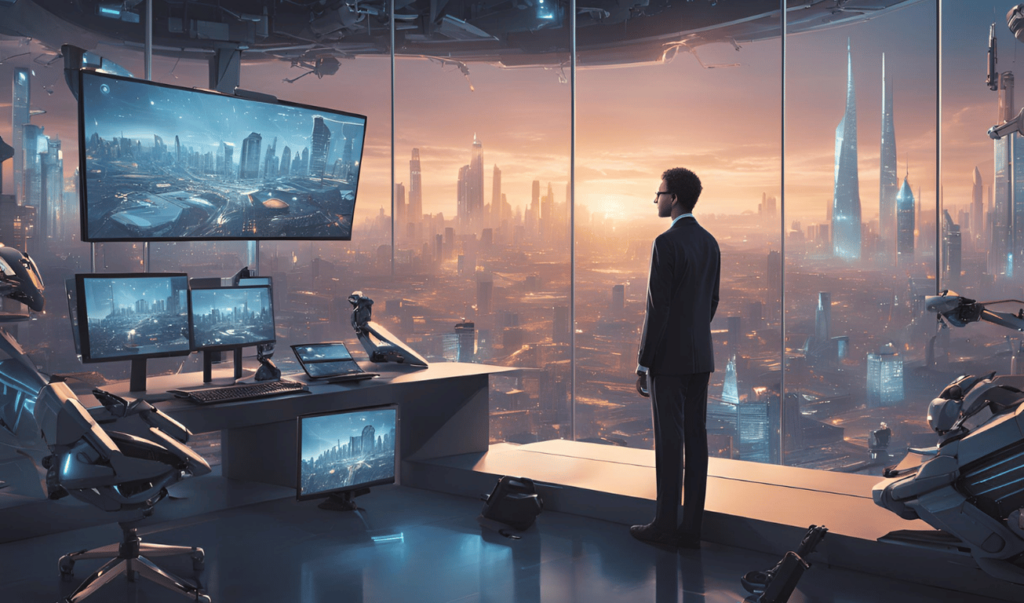Now Reading: AI and Jobs: Will Artificial Intelligence Replace Your Career?
- 01
AI and Jobs: Will Artificial Intelligence Replace Your Career?

AI and Jobs: Will Artificial Intelligence Replace Your Career?
Introduction
Artificial Intelligence (AI) is transforming industries across the United States at an unprecedented rate. From automating repetitive tasks to optimizing workflows, AI is improving productivity—but it also raises concerns about job security. Will AI replace your job? Or can it be a tool to advance your career? In this article, we’ll explore the impact of AI on various sectors, the types of jobs at risk, and how you can future-proof your career.
1. The Rise of AI in the Workplace
Artificial Intelligence is no longer a futuristic concept—it’s here and integrated into our daily work environments.
- Stats: According to McKinsey, AI adoption could automate up to 30% of tasks in many jobs by 2030.
- Examples:
- Retail: AI tools for inventory management (e.g., Walmart uses AI for restocking).
- Healthcare: Diagnosis and administrative tasks automated with AI-driven software.
- Finance: Banks use AI for fraud detection and risk assessment.

2. Jobs at Risk: Where AI Is Replacing Human Labor
While AI is enhancing productivity, certain repetitive or rule-based jobs are more susceptible to automation.
Industries Affected:
- Manufacturing
- AI-powered robots are automating assembly lines.
- Example: Tesla’s use of robotics to automate car production processes.
- Transportation
- Self-driving vehicles are disrupting trucking and delivery services.
- Example: Waymo and Tesla’s advancements in autonomous vehicles.
- Customer Service
- AI chatbots are replacing entry-level support agents.
- Example: Amazon and other e-commerce giants use AI chatbots for instant customer support.
- Data Entry and Administrative Jobs
- Tools like Zapier and AI transcription services automate repetitive tasks.
- Example: Otter.ai replaces the need for manual note-taking.
3. Jobs That Will Thrive with AI Integration
AI is not only replacing jobs—it’s also creating new opportunities and enhancing roles.
High-Demand AI-Compatible Jobs:

- AI Specialists & Engineers
- Professionals who design, develop, and manage AI systems.
- Skills Needed: Python, machine learning, and deep learning expertise.
- Data Scientists
- Analyze and interpret large data sets to make AI work effectively.
- Example: Netflix uses AI algorithms to personalize recommendations.
- Healthcare Professionals
- AI assists, but doctors, nurses, and therapists remain irreplaceable for human care.
- Creative Industries
- AI tools like MidJourney assist designers, but creative direction still relies on human ingenuity.

4. How to Future-Proof Your Career Against AI
AI will reshape the job market, but you can stay ahead by adapting and upskilling.
Practical Tips for Career Growth:
- Learn AI and Tech Skills:
- Courses in AI, coding, and data analysis (e.g., Coursera, Udemy, LinkedIn Learning).
- Focus on Human-Centric Skills:
- Skills like critical thinking, emotional intelligence, and creativity are harder to automate.
- Leverage AI as a Tool:
- Learn to use AI tools to improve your job performance.
- Examples: Writers using ChatGPT, project managers using Notion AI, and marketers using Jasper AI.
- Stay Updated on Industry Trends:
- Follow leading AI trends in tech hubs like Silicon Valley or New York.
5. The Future: AI and Human Collaboration
AI is not an enemy but a tool for collaboration. Successful professionals in 2024 and beyond will be those who embrace AI as an ally rather than a threat.
Key Point: AI enhances productivity, but human judgment, empathy, and creativity remain irreplaceable.
Conclusion
While some jobs are at risk, AI is also creating new opportunities. Instead of fearing automation, focus on adapting and learning to work alongside AI. By upskilling and leveraging AI tools, you can ensure your career thrives in the age of artificial intelligence.












